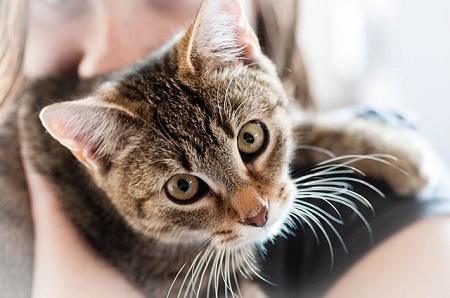Pesky Summertime Pests can be Especially Problematic for Pets

Summer is almost here, and with it comes fun in the sun, camping and hiking, and trips to the lakeside. But along with this season of fun and relaxation comes the usual summertime pests. According to a recent article on PetMD.com, “fleas, ticks, and mosquitoes are all visual reminders of the itchy woes we and our pets have to deal with, but there are also the unseen pests. Waterborne parasites and bacterial infections, to mention just two, are also typical summertime plagues.
While we don’t want to get your head spinning from worrying too much about all the things there are to worry about, we do want you to know what you and your pets are up against, and what you might be able to do to mitigate any ill effects. As G.I Joe would say: “Knowing is half the battle.”
Fleas
These pests are nearly impossible to avoid for an entire season. Even with shampoos, collars, powders and sprays, your pet may still end up with fleas. The flea life cycle includes the adult flea, eggs, larvae and pupa. The adult fleas are responsible for the biting that leads to itching, but cannot survive long if they are not on the pet, and once they lay their eggs they fall off the pet. Fleas also lay their eggs in shady areas outside and around the house. Most owners first notice frequent and severe itching and scratching, hair loss, and scabs on their pet. Many times the hind end is affected more than the front of the body or the head. Other side effects include anemia, tapeworm infection (a parasite which finds an intermediate host in the flea), pruritis (intense itching with inflamed skin), and hypersensitivity. There is also plague, and in cats, Rickettsia felis, and Bartonella henselae. The best way to check for fleas is with a flea comb. Frequent bathing and combing are essential components of any flea treatment program. To learn more about some of the natural methods for controllling fleas, see our article here.
Ticks
A lovely day out in the woods, communing with nature, breathing fresh air. These are the joys of summer. Unfortunately, ticks like these spots, too, and they don’t mind hanging around to wait for warm blooded travelers like you and your pet to hitch a ride on. Ticks have a hard-backed shield that can be felt as small bumps during regular petting. They are also easily visible when the fur is parted. Side effects include blood loss anemia, hypersensitivity, pruritis, and damage to the lymphatic, immune, and nervous systems. Some of the more serious diseases that ticks can transmit are the Rocky Mountain spotted fever, Lyme disease, ehrlichiosis, and babesiosis. If you will be spending time in grassy or wooded areas with your pet, be sure to do a tick inspection daily so that the tick can be removed before damage can be done. If you don’t know how to remove a tick the proper way, make sure to become familiar with the proper technique before doing it. You don’t want to end up with a worse situation because of improper removal. There are a few natural methods for avoiding ticks.
Mosquitoes
Even your indoor pets are at risk for some of the miseries brought on by mosquitoes, since mosquitoes can still get inside on occasion and can bite through screens on windows, where cats tend to rest. Of course, mosquitoes cause itchy bumps, and that is painful enough, but there are also some serious and life-threatening diseases to be aware of. Heartworm, a roundworm that can infect both cats and dogs, is a silent killer that can be easily treated if caught in time. Two mosquito-borne diseases that affect both humans and domestic animals are the Saint Louis Encephalitis (SLE), which attacks the brain, and the West Nile Virus (WNV).”
At Homestead Pest Management, we do battle against all the pests that plague both people and pets. We offer the latest in mosquito control in addition to other services that protect your home, property, and business from fleas, ticks, rodents, termites, etc. Contact us today for a personalized assessment and protection plan.
